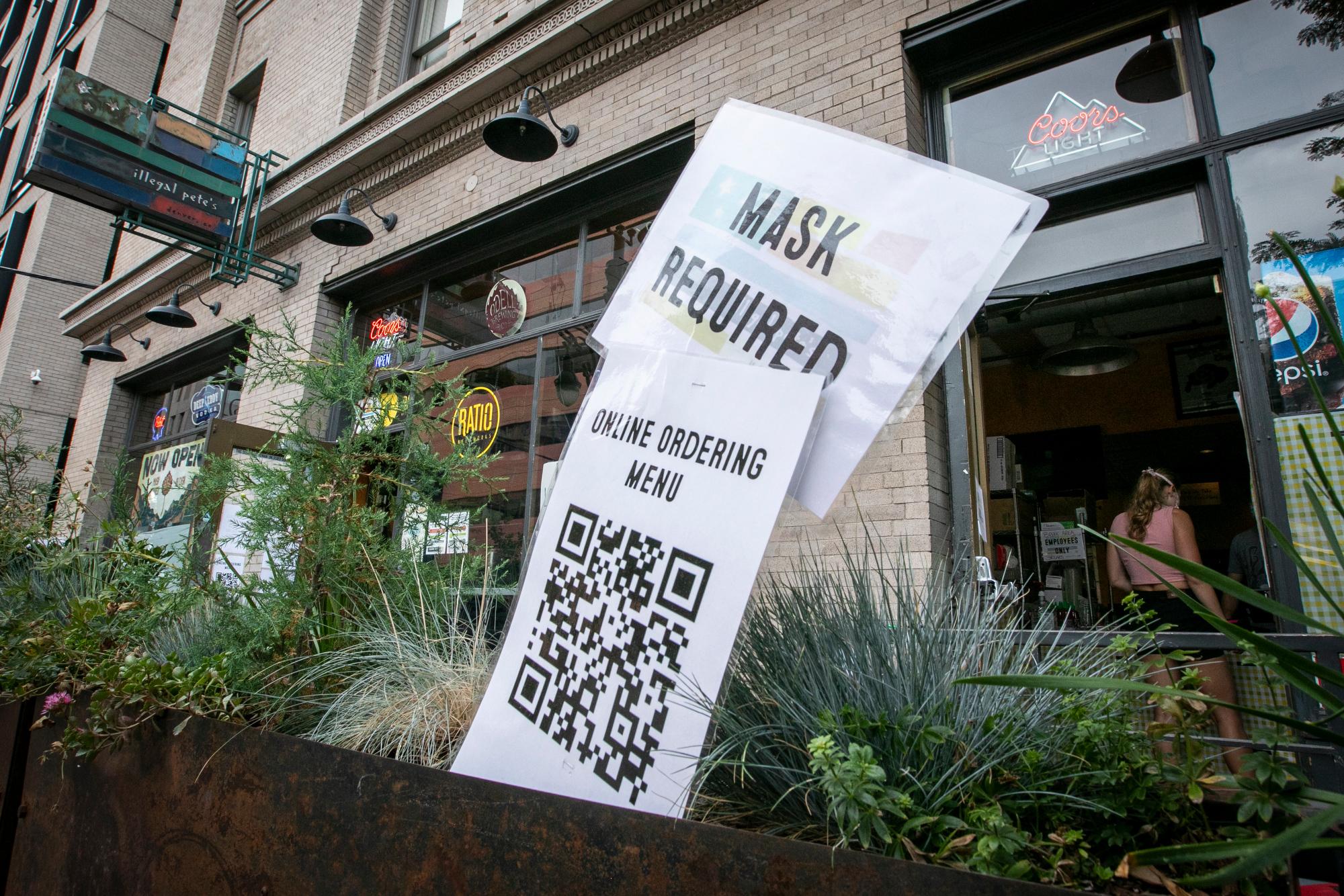
Updated Aug. 6 at 5:13 p.m.
Early on in the coronavirus pandemic, groups like the World Health Organization and the Centers for Disease Control and Prevention issued guidance intended to protect people from certain kinds of transmission: respiratory droplets spread when an infected person sneezes or coughs near you and through surfaces contaminated with the droplets.
Now, at the urging of scientists like Jose-Luis Jimenez, a chemistry professor at the University of Colorado Boulder who’s studied aerosols for two decades, those organizations have added another critical piece to the puzzle: the spread of airborne particles — also called aerosols — that linger in the air.
That also explains a lot about why indoor transmission is significantly higher than outdoor transmission, and why in recent months, public health officials have turned their focus to having people take precautions like masks indoors. Outside, those same particles are dispersed by wind and the virus is killed off by ultraviolet rays.
The scientists attribute aerosols to super-spreader events — like one in Guangzhou, China — where diners in a restaurant were infected with the virus even though they remained more than six feet away from someone carrying it.
Jimenez was one of more than 200 researchers who signed an open letter earlier this summer urging the WHO to add aerosols to the list of ways the virus is transmitted, which the WHO has since done. It’s a sign of how quickly people’s understanding of the virus is evolving.
Jimenez shares these six tips for staying safe indoors:
- Don’t go to indoor public spaces unless it’s absolutely necessary
- If you are indoors, spend the least of time there as you can
- Make sure when you’re indoors, the room is well-ventilated, including mechanical ventilation like particle air filters and natural ventilation like open windows and doors
- Always wear a mask indoors
- Make sure the mask fits and doesn’t have gaps
- Anyone who is talking to others — especially to a large group — should be wearing a mask. Shouting and singing are especially problematic and should be avoided.
If We Should Limit Our Time Indoors, What Does That Mean For Classrooms?
There's no easy answer. "I have a six year old. We've been talking to the people in charge of the school, and it is very unclear to the people in charge of the schools what's going on and what they should do," Jimenez said. "Especially this aerosol route. That's one reason why we're urgently trying to get the message out."
He says people should still wipe down surfaces, wash their hands and avoid close contact with others.
"But we should put at least as much emphasis on thinking about the air," Jimenez said. "Basically ... that when you go in public spaces, imagining that everybody's smoking and you don't want to smell smoke."
Jimenez believes the lack of understanding about airborne spread has led to many more infections.
"We have not been defending ourselves very smartly because we didn't understand how the transmission happens," Jimenez said.
He hopes this guidance along with the growing body of research around the novel coronavirus can make a major difference in the number of caseloads worldwide, at a time when the number of infections is rising.









